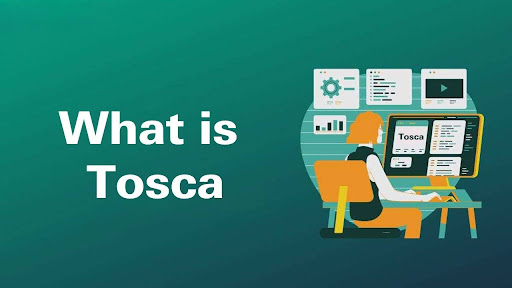
What is Tosca
Tosca is a powerful software testing tool that offers a comprehensive solution for automated, end-to-end testing of web applications, mobile apps, and APIs. Its unique model-based approach allows testers to create reusable test assets that can be easily maintained and scaled across projects. With Tosca, organizations can streamline their testing processes, reduce manual effort, and accelerate the delivery of high-quality software products to market.
One key feature of Tosca Training is its ability to support continuous testing practices within Agile and DevOps environments. By integrating with popular tools such as Jenkins and JIRA, Tosca enables teams to automate the entire testing lifecycle from test design to execution and reporting. This seamless integration fosters collaboration between development and QA teams, ensuring faster feedback loops and improved overall software quality. In addition, Tosca’s AI-powered capabilities enable intelligent test automation by automatically detecting changes in applications and recommending adjustments to test scripts for maximum efficiency.
History: Origins and development of Tosca
Tosca, a renowned opera composed by Giacomo Puccini, first premiered in Rome on January 14, 1900, at the Teatro Costanzi. The opera is based on the play La Tosca by French playwright Victorien Sardou and adapted into a libretto by Luigi Illica and Giuseppe Giacosa. Its dramatic plot revolves around themes of love, jealousy, and political intrigue set amidst the backdrop of Napoleonic-ruled Rome.
Puccini’s choice to adapt La Tosca for an opera was a bold move that paid off tremendously. The music in Tosca is characterized by its emotional depth and intensity, perfectly capturing the passion and drama of the storyline. Through its intricate compositions and powerful vocals, Tosca has cemented itself as one of Puccini’s most beloved works and continues to captivate audiences worldwide with its timeless themes and incredible storytelling prowess.
Features: Key features and benefits of Tosca
Tosca’s key features set it apart in the realm of testing automation tools. One standout benefit is its model-based approach, which allows for reusability of test assets across different test cases. This not only saves time but also ensures consistency and accuracy in testing processes. Another noteworthy aspect is Tosca’s comprehensive support for various technologies, including web applications, mobile apps, API services, and more. This versatility enables organizations to streamline their testing efforts without worrying about compatibility issues.
Moreover, Tosca offers seamless integration with popular CI/CD tools like Jenkins and TeamCity, facilitating the automation of testing within the DevOps pipeline. This integration enhances efficiency by automating repetitive tasks and enabling faster feedback loops during software development cycles. Additionally, Tosca’s risk-based testing capability empowers teams to prioritize critical test cases based on potential business impact, ensuring that resources are allocated efficiently to mitigate risks effectively. Together, these features make Tosca a powerful tool for modern software quality assurance practices.
Use Cases: Applications and industries using Tosca
When it comes to the applications and industries using Tosca, the reach is vast and impactful. In the realm of software testing, Tosca’s automation capabilities have been a game-changer for companies looking to streamline their testing processes and ensure quality releases. Industries such as finance, healthcare, and e-commerce have leveraged Tosca to enhance their digital products’ reliability, efficiency, and user experience.
Moreover, Tosca finds its place in industries with stringent regulatory compliance requirements like banking and healthcare. The tool’s ability to automate complex test scenarios while ensuring traceability and documentation makes it an ideal choice for organizations where compliance is non-negotiable. This emphasis on precision and accuracy has earned Tosca a reputation as a reliable partner in navigating the intricacies of these highly regulated sectors.
Implementation: How to implement Tosca effectively
Implementing Tosca effectively requires a strategic approach that focuses on collaboration between all stakeholders. A key aspect is to define clear goals and objectives for the implementation process, ensuring alignment with the organization’s overall strategy. It’s essential to create a detailed roadmap that outlines timelines, milestones, and responsibilities to keep everyone on track.
Furthermore, engaging with end-users throughout the implementation process is crucial for success. Their feedback can provide valuable insights into how Tosca is being used in real-world scenarios and help identify opportunities for improvement. By fostering a culture of continuous learning and adaptation, organizations can ensure that their use of Tosca remains effective and aligned with evolving business needs.
Conclusion: Summary of the importance of Tosca
In conclusion, Tosca emerges as a pivotal tool in the realm of automated software testing, offering unparalleled benefits to organizations seeking to enhance the quality and efficiency of their testing processes. Its comprehensive features allow for end-to-end automation, covering a wide range of technologies and interfaces with ease. By streamlining the test creation and execution process, Tosca empowers teams to deliver high-quality applications at a faster pace, thereby reducing time-to-market and increasing customer satisfaction.
Furthermore, the robustness and flexibility of Tosca enable it to adapt to evolving project requirements seamlessly. Its ability to integrate with other tools and platforms makes it a valuable asset in today’s dynamic software development landscape. As organizations strive for digital transformation and rapid innovation, embracing Tosca can significantly boost their testing capabilities and pave the way for success in an increasingly competitive market. Ultimately, investing in Tosca represents a strategic decision that can yield long-term benefits in terms of cost savings, improved productivity, and superior product quality.
Author BIo:
I am Pavan Kumar, and possess a deep understanding of various technological trends, advancements, and their implications.Throughout my career, I has contributed to numerous technology publications, authoring articles, blog posts, and whitepapers on a wide range of topics, including artificial intelligence, Guidewire Training , Salesforce Vlocity Training, Big Data, Cyber Security, Ansible, Snowflake